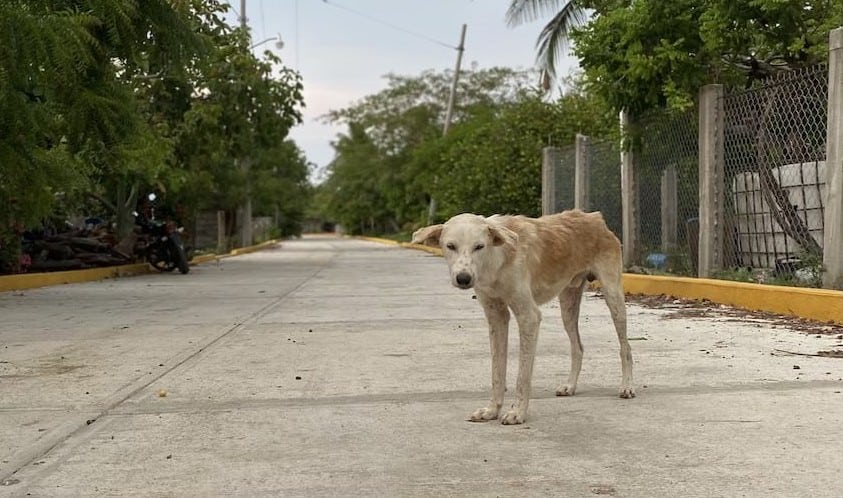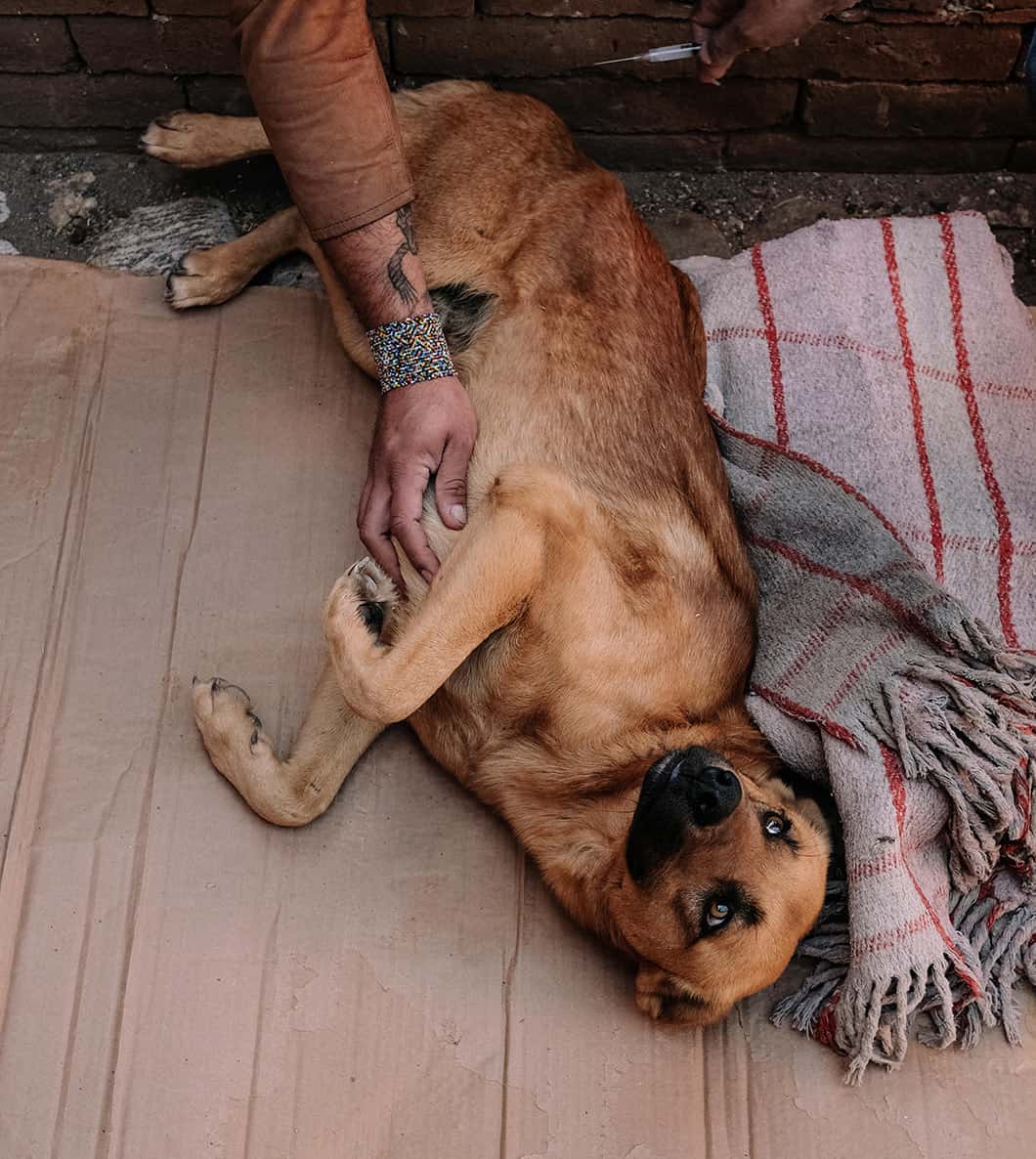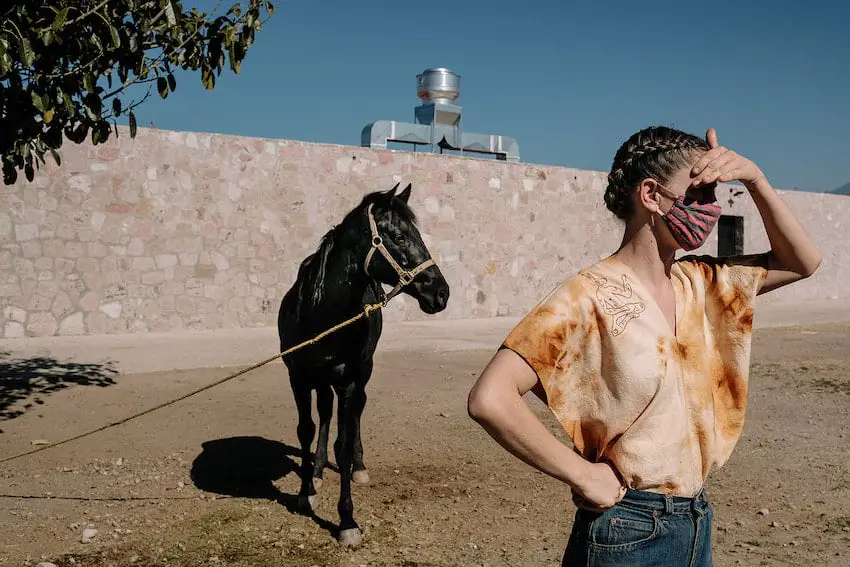Founding a successful business in a foreign country is challenging. Combining it with an all-consuming philanthropic pursuit is even harder. Caitlin Ahern, an ambitious creative entrepreneur with a passion for protecting dogs, tells her story
There are 18 million street dogs in Mexico, more than double the amount of people living in New York City today. If these 18 million dogs were to come together to form one canine community, it would be one of the most populous cities in the world.

Cruel treatment, neglect and abuse of street dogs is an endemic issue in Mexico. Though kindhearted people help some of these animals find homes, Mexico has one of the highest — if not the highest — rate of stray dogs in all Latin America.
Entrepreneur Caitlin Ahern moved from the United States to Mexico in 2014. Combining her experience as a teacher and working for fair-trade craft companies stateside, she came to Mexico and founded Thread Caravan, an experience-led business that organizes art and textile workshops nationwide in collaboration with local craft communities.
Working with local communities, Ahern increased her offerings rapidly, introducing more and more people to the unique world of Mexican crafts. Her research trips to remote areas also revealed a challenging, darker side of everyday life here.
“In many towns, there are large open spaces where unvaccinated, maltreated dogs come and go,” Ahern says. “Living on the streets provides dogs with certain liberties that some genuinely seem to enjoy. However, it also brings many inherent risks.”

“I encountered dogs that have been hit by cars, dogs that have machete wounds, dogs that are paralyzed from acute spinal impact injuries,” she said.
Although there were animal rescue organizations where Caitlin lived, they were few and far between in smaller towns.
Ahern refused to turn a blind eye and quickly set about meeting with local veterinarians. She became part of different communities, learning from people which dogs had homes or were injured. She quickly saw the benefits of information-sharing and of discussions about how the problem of a growing stray dog population could be solved.
Shortly afterward, Ahern, two vets and several neighbors spayed and neutered 10 dogs in San Jerónimo Tlacochahuaya. The campaign attracted attention from other towns, planting the seed for what would become Aherns’s dog shelter and protection charity, Caravana Canina.

Eight years on, she runs her charity as a vehicle for education and canine protection. Caravana Canina has spayed and neutered over 400 dogs, found homes for 150 and provided food and medical care for countless dogs across Mexico.
Ahern tells me she can’t remember the last day she didn’t receive a message asking her to rescue an injured or abandoned dog. One recent case still resonates in her mind.
A woman who lived in Santa María del Tule, a town famous for being home to Mexico’s oldest tree, called Ahern in panic. She had seen a dog unable to walk that was crawling on the hot pavement just outside the town’s center.
X-rays showed an acute spinal fracture, likely from being struck hard by a blunt object. A trusted vet told Ahern and the woman who had alerted her to the situation that the 1-year-old dog, named Ficus, would remain permanently paralyzed. Euthanizing Ficus would be the most practical option the vet told Ahern.

“We listened to the vet in silence together. I recall how enthusiastic the dog was about life, despite not being able to walk, and couldn’t shake the thought from my head.”
That day, Ahern decided to foster the dog.
“Ficus, [now renamed Ferris] was with us for almost one year,” Ahern told me. “We organized a wheelchair for him, reusable diapers and reusable pee pads for his bed. We spent time researching pain relief and found that giving him CBD and restricting him to a specialist diet would ease his pain and gradually boost his strength.”
“Eventually, we found a wonderful family for him — a woman in Phoenix, Arizona, who has three other dogs with special mobility needs. Ferris is incredibly happy there.”

Throughout Mexico, admirable work is already being done to raise awareness of the benefits of spaying and neutering dogs.
According to Ahern, “Caravana Canina is just reinforcing that effort to help amplify, connect people and provide extra resources.”
Despite this, it’s clear that more needs to be done.
Many people also feel threatened by packs of street dogs roaming the streets. One dog owner from Oaxaca revealed to me that she won’t leave the house without pepper spray, which she is ready to use against street dogs who could threaten her and her own dog. Another dog walker tells me they prefer to arm themselves with a “large wooden stick for self defense,” a common solution in Mexico.
Caravana Canina and other similar charities operating in Mexico are actively demonstrating that tackling the root of the problem through education about population control allows humans and dogs to coexist in the most healthy and humane way.
“We can all do our bit to help humans feel safer and dogs live a better life here,” Ahern said. “Teach children how to care for animals, share information with your friends about different illnesses that affect animals and talk about useful tips and tricks to help pet owners provide the best care to their animals.”
Though the scale of the problem may seem too great to solve, rooting for this woman and her (literal) underdog story is hard to resist.
Gordon Cole-Schmidt is a public relations specialist and freelance journalist, advising and writing on companies and issues across multi-national communication programs.
